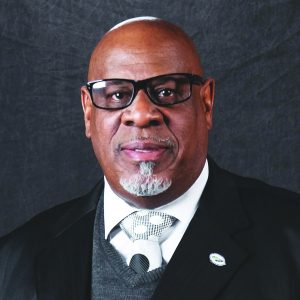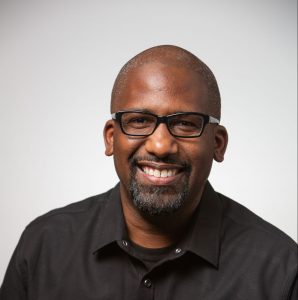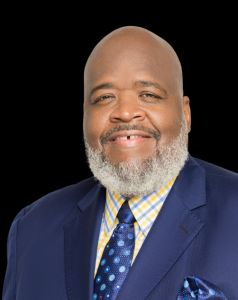EDITOR’S NOTE: In a previous edition of the Baptist Messenger, Walter Wilson, Oklahoma Baptists’ African American Ministry Partner, offered his perspective on the past, present and future of what has been called “The Black church in America.” In part 2, Wilson continues to interview various African-American pastors in Oklahoma on the topic.
Walter Wilson: Pastor Tiller Watson, you serve as pastor of St. Paul Baptist Church in Tulsa at a strategic place and time. Can you talk about the impact of the Black church and some opportunities you see going into the future?
Tiller S. Watson III: Since my younger years, I have always seen the Black church as a place of information, a place of encouragement and a place of inspiration. I grew up at Friendship Church, then pastored by the late Dr. L.L. Tisdale. During that time, I was about 10 years old or so, and I remember that oftentimes he would provide the church with necessary information on Sunday morning before his sermons.
I also remember the announcement clerk would inform us of events that would take place in the weeks to come. It seemed as if the atmosphere at the church I grew up in, I saw the pastor being outspoken and uplifting, regarding issues that were taking place in the Black culture.
I remember discussions about urban renewal and changes that were taking place on our side of town. I would later move to Mount Rose Baptist Church under the leadership of the late Dr. A.D. Phillips. He served as pastor for 50 years while leading the Northwest Creek District as a moderator, being president of the Martin Luther King Commemorative Society and staying engaged with what was going on in the community. I would always see involvement from the pastors whom I knew initially through ministry connections.
These pastors carried a prophetic mantle as well because they would also inform us of the results of things. If we chose not to stay aware and observing about the things that were taking place around us, in a real sense, they charged to us to be involved and to do something in the space that we occupied.
In the present, our determination must be the same—to keep our hearers informed about movements that are taking place around us and to charge them to be involved and to bring the change that we believe needs to happen.
The dialogues that have taken place among people regarding community efforts, whether it be in response to the murder of George Floyd or Breonna Taylor or other unjust killings, or our participation in the voting process, these conversations must happen inside of the Black church for this organization to remain relevant to this generation and to have and maintain a place in society.
For the Black church to move into tomorrow, we must continue to build upon the foundation that has been laid by the churches of our youth. We must maintain our focus on justice, being involved in our local municipalities, encouraging education and then acquire representation. If those elements continue to be a part of our Gospel conversation inside of our churches, then the Black church will remain relevant, and a force for the Gospel and for good in the times ahead.
Walter Wilson: Teron Gaddis, you have an important ministry at Greater Bethel Baptist Church in Oklahoma City where you serve as pastor. Can you talk about the significant challenges and opportunities facing the Black church today?
Teron Gaddis: Thank you brother, yes. Jesus told Peter, “Upon this rock I will build my church, and the gates of hell shall not prevail against it.”
I have thought a lot about the Black church because of recent events. I have been asked by many, “Where is the church?” The church is where it has always been. The church is performing the Great Commission. The church is preaching, teaching, baptizing and evangelizing. One of the reasons I believe people are asking where is the church is because the world has set expectations on the church that God did not command.
When we look at the Black church of times past, they trusted God and God alone. Because of the hardships they endured, God was truly the source of their strength. When times were rough in the cotton fields, they prayed and sang songs to God. They believed in God in both word and action. While the slave master made them weak, God made them strong.
Fast forward to 2021 and what do we see? Many Black churches have lost their dependence on God. There is more of the world in the church to attract people while souls are lost. There is less of a concern for bringing people to Christ and more emphasis on making churches comfortable for people. This was never the Black church. The Black church stood on the Word. The Black church of yesterday was not infiltrated by politics. Instead, through the power of God they prayed and asked God for direction, and He led them to victory.
Please know I am not saying this is true for all Black churches. This is true for Black and Anglo churches. We have used our pulpits to push political agendas and made the Word of God fit where we want it to fit. Sunday mornings are packed in the Black church when all the pomp and circumstance is going on and a small number attending Bible study and prayer meeting. The Black church has more people in attendance at musicals than Small Group. Who is to blame? I am not here to place blame on anyone. I am here to say God is calling for the church to return to Him. He wants to be lifted up, not the preacher, the teacher, the singer nor anyone else.
The Black church and all other churches appear to have a heart problem. Because God is the only One who can change a heart, the Word of God must be at the forefront. Christianity must be lived out and not just spoken of. For more than a year, God allowed a global pandemic to come into the world. He sat every one down to expose the truth of the church. The questions I have for everyone reading this article are, “Are you closer to God or the same? Has your church returned to God?” If the Black church continues to depend on everyone and everything other than God, the world is in for a world of hurt. The world is in the shape it is in right now because God has not been at the center.
Walter Wilson: Thank you brothers for sharing these perspectives.
To view this feature or Part 1 online visit baptistmessenger.com.








